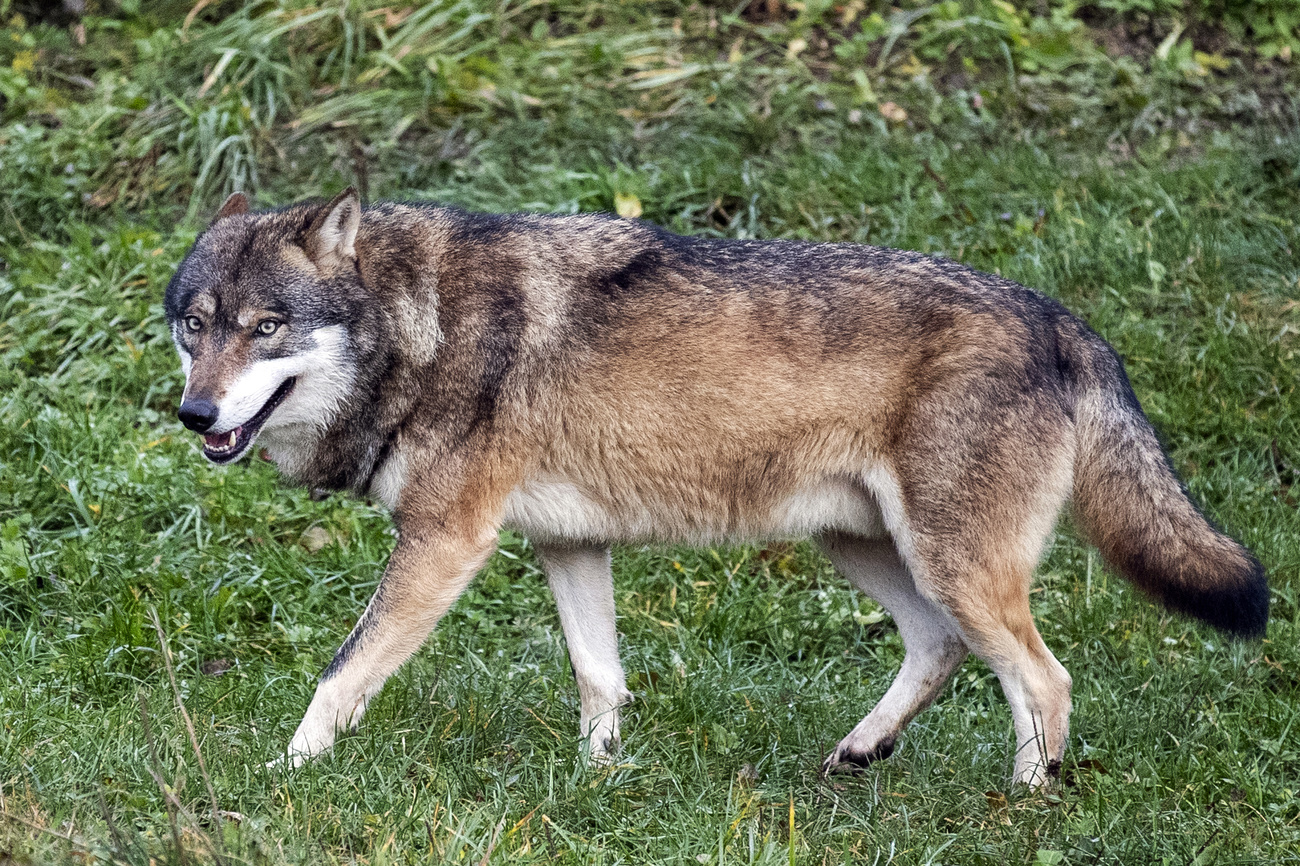
Swiss government authorises shooting of 12 wolf packs

Switzerland’s cantons can kill a total of 12 wolf packs. The Federal Office for the Environment has approved corresponding applications from five cantons. Only one application from Ticino to remove the entire pack in the Onsernone Valley was rejected.
In a press release issued on Tuesday, the federal office explained that there had not been any wolf kills in protected situations in the Onsernone Valley in the past 12 months. However, Ticino could shoot two-thirds of the pack’s young wolves.
The cantons can also do the same for five other packs (Val Colla, Carvina, Jatzhorn, Rügiul and Mont Tendre), it added. Applications had been submitted by Graubünden, Valais, Vaud, St Gallen and Ticino.
+ When it’s legal to shoot the wrong wolf
The shootings are made possible by an amendment to the Hunting Ordinance, which came into force at the beginning of November. This allows wolves to be shot preventively from December 1 to January 31, that is before they have caused any damage.
Number of wolves is growing rapidly
According to federal figures, 32 wolf packs with a total of around 300 wolves currently roam Switzerland. In 2020, there were 11 packs with some 100 wolves.
The number of livestock killed rose from 446 in 2019 to 1,480 last year. This is a particular problem for Alpine farming with sheep and goats. However, the wolves also killed cattle, alpacas and a donkey.
+ Wolves can be shot before they kill
Only gamekeepers and specially trained hunters are authorised to hunt wolves. According to the Federal Office for the Environment, it is unlikely that all wolves will be killed by the end of January as authorised by the federal government. However, it can be assumed that the growth of the wolf population, as intended by the Federal Council, will be slowed down considerably, according to the statement.
In the coming years, the cantons will intervene preventively in the wolf population from September to the end of January. According to the information, they will have to submit new applications each time.
Implementation likely to take years
Valais reacted immediately to the federal office’s decision. State Councillor Frédéric Favre decided to order the culls immediately, the canton announced – less than an hour after the federal office sent its notification.
The plan is to cull seven of the 13 packs of around 34 animals in Valais, although according to the canton, the realisation of the project is likely to take years.
Canton Graubünden wants to cull around a third of the population of roughly 130 wolves. Four of the 12 wolf packs living in Graubünden are to be wiped out completely.
St Gallen has authorised the shooting of the entire Calfeisental pack. This year, the pack killed 14 sheep in protected herds.
Wolf conservationists see breach of law
The federal and cantonal plans had already been criticised in wolf conservation circles in the run-up to the federal office’s decision. The plan is incompatible with the Bern Convention, the wolf conservation organisations CH Wolf and Avenir Loup Lynx Jura (Future Wolf Lynx Jura) announced last Friday.
The Bern Convention is a convention on the conservation of European wild flora and fauna and their natural habitats. Switzerland has signed this convention.
This news story has been written and carefully fact-checked by an external editorial team. At SWI swissinfo.ch we select the most relevant news for an international audience and use automatic translation tools such as DeepL to translate it into English. Providing you with automatically translated news gives us the time to write more in-depth articles. You can find them here.
If you want to know more about how we work, have a look here, and if you have feedback on this news story please write to english@swissinfo.ch.

In compliance with the JTI standards
More: SWI swissinfo.ch certified by the Journalism Trust Initiative






























You can find an overview of ongoing debates with our journalists here . Please join us!
If you want to start a conversation about a topic raised in this article or want to report factual errors, email us at english@swissinfo.ch.